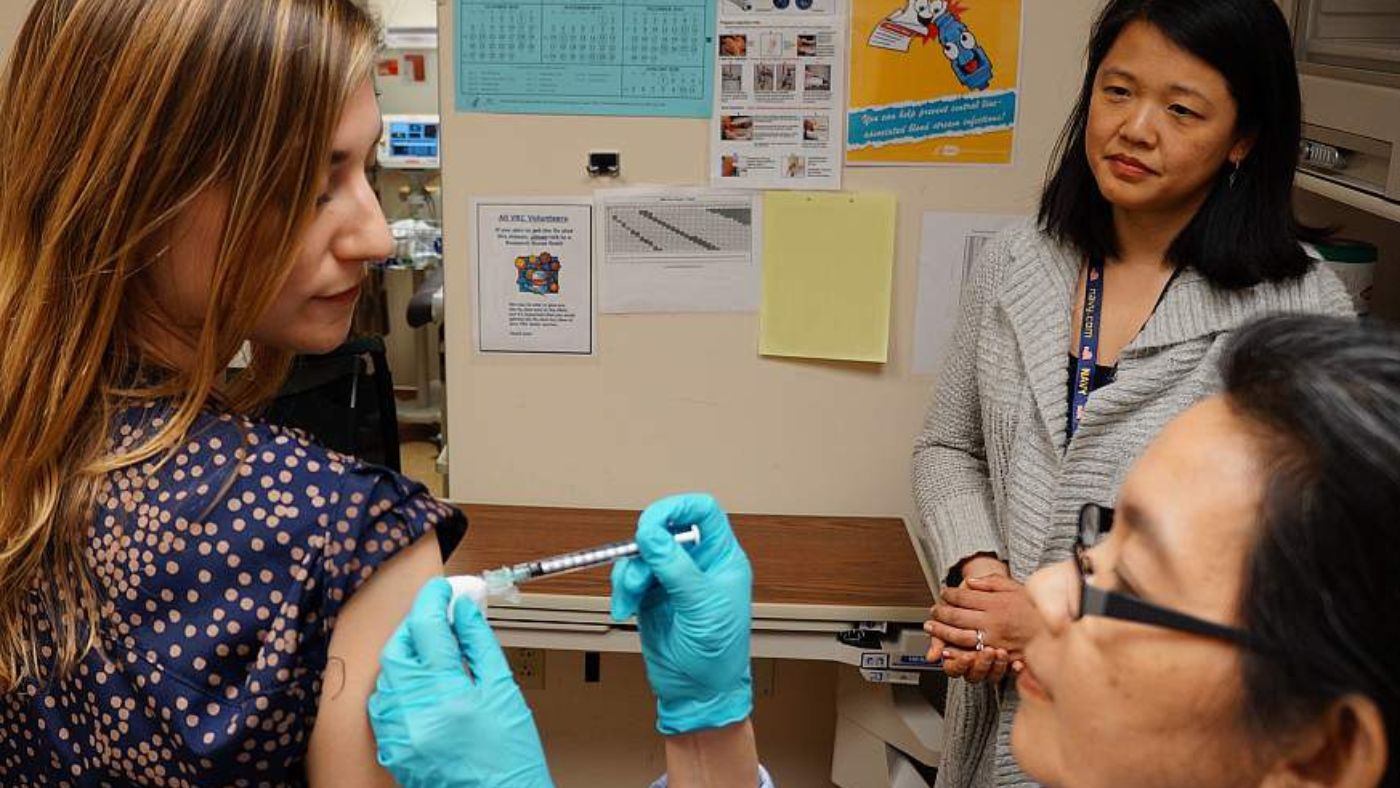Patients are currently enrolling in an early stage clinical trial to evaluate a universal flu vaccine utilizing messenger RNA (mRNA) technology, as announced by the National Institutes of Health on Monday.
The vaccine aims to provide broad protection against various flu strains and establish long-term immunity, potentially eliminating the need for annual vaccinations.
The mRNA technology, also employed in Moderna’s and Pfizer’s COVID-19 vaccines, forms the basis of this new flu vaccine initiative, with NIH having played a pivotal role in its development.
Dr. Hugh Auchincloss, acting director of the National Institute of Allergy and Infectious Diseases, emphasized the vaccine’s potential role in defending against future flu pandemics, stating, “A universal flu vaccine could serve as an important line of defense against the spread of a future flu pandemic.”
The clinical trial will enroll up to 50 healthy participants aged 18 to 49 to assess the safety and efficacy of the experimental vaccine in eliciting an immune response.
Participants will also include individuals receiving a quadrivalent flu vaccine, which protects against four specific flu strains, enabling comparison between the universal vaccine and current market options.

Developed by researchers at the National Institute of Allergy and Infectious Diseases, the universal flu vaccine trial is actively recruiting volunteers at Duke University in Durham, North Carolina.
While existing flu vaccines provide significant protection against hospitalization, their effectiveness can vary widely from year to year.
Currently, scientists must predict months in advance which flu strains will predominate to allow vaccine manufacturers sufficient time to produce the necessary shots before flu season begins.
This prediction process is challenging as dominant flu strains can change between strain selection and vaccine distribution, leading to mismatches that reduce vaccine effectiveness.
According to the Centers for Disease Control and Prevention (CDC), well-matched flu vaccines typically reduce illness risk by 40% to 60%. However, in years with poor strain matching, vaccine effectiveness has dropped to as low as 19%.
Between 2010 and 2020, flu-related deaths in the U.S. ranged from 12,000 to 52,000 annually, depending on circulating strains and vaccine match quality, as reported by the CDC.
